Cherry eye in cats happens when the third eyelid becomes inflamed and red, resembling a small cherry. This is more than just a cosmetic issue and can cause irritation and discomfort. Here's what pet parents should know about cherry eye in cats.
What Is Cherry Eye in Cats?
Cherry eye in cats is the protrusion of the third eyelid that swells and reddens into a visible "blob" of tissue along the edge of the eye. A gland in the third eyelid normally helps protect and lubricate a cat's eye. When functioning properly and in place, it's rarely seen because it is tucked against the corner of the eye socket. In cherry eye, this gland gets stuck in an abnormal position and disrupts tear flow.
The medical term for cherry eye is "prolapsed nictitating membrane." It's also seen in dogs and rabbits. Humans lack a third eyelid, so we cannot develop cherry eye.
Symptoms of Cherry Eye in Cats
The primary sign of cherry eye in cats is a pink or red fleshy protrusion coming from the inner corner of a cat's eye. It's often described as a pink bubble or swelling and may be large enough to block part of a cat's eye. Cherry eye may come and go or be present consistently.
Cherry eye can be uncomfortable for some cats, leading them to paw at the eye or rub their face on surfaces. The eye may not be properly lubricated with a non-functional third eyelid, and friction can cause irritation, infections, and corneal ulcers. A corneal ulcer is very painful and can lead to permanent eye damage.
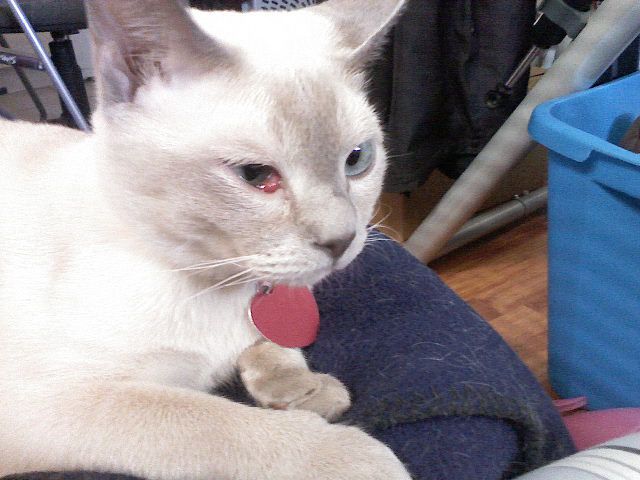
What Causes Cherry Eye in Cats
Cherry eye occurs when the fibers that hold the third eyelid in place are weakened. The membrane and the tear gland within it become swollen and protrude from the eye. Although the true cause for cherry eye is unknown in cats and can happen spontaneously, some possible contributing factors include inflammation and anatomy, such as in brachycephalic (flat-faced) cats or irregular (scrolled) cartilage in the third eyelid.
How Vets Diagnose Cherry Eye in Cats
Cherry eye is very recognizable by a veterinarian. Once the condition is identified, the vet will look for an underlying cause. They will closely examine your cat's eye to check for injuries or foreign particulate matter.
How to Treat Cherry Eye in Cats
Typically, correcting cherry eye will provide long-term benefits to the eye and reduce the risk of further damage. Surgical correction is often the most effective treatment.
Eye Medications
The vet may recommend lubricating eye drops to protect and moisturize the eye. If secondary problems have developed due to a cherry eye, ophthalmic ointments or eye drops may be necessary.
Surgery
When cherry eye is chronic or causes other problems, vets recommend corrective surgery. One approach is to stitch the gland back into place to allow the inflammation to subside so that the membrane can resume lubricating the eye.
Prognosis for Cats with Cherry Eye
Cherry eye isn't typically a critical condition, but chronic cases indicate an inflammatory issue with the eye that will require treatment to resolve. The worst-case scenario is loss of vision, pain, and/or loss of eye due to severe corneal scarring or rupture, but this is a rare occurrence.
Most cats recover well from cherry eye surgery with proper home care. Be sure your cat wears a cone or e-collar alternative to prevent rubbing at the eye. Give medications as directed and follow up with your vet regularly.
How to Prevent Cherry Eye in Cats
Unfortunately, there is no reliable way to prevent cherry eye in cats. If a cat is born with a cherry eye, there is nothing you can do to prevent it from happening, even when it comes and goes. You can, however, be vigilant about making sure your cat's eyes do not get too dry by using eye drops as recommended by your vet. Early detection can simplify treatment, so contact your vet at the first sign of an eye problem and visit the vet for routine wellness checkups.
Related Article
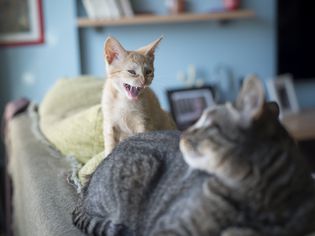
How to Solve Aggression Between Household Cats
While it can be upsetting and frustrating, fighting between cats that live in the same household is
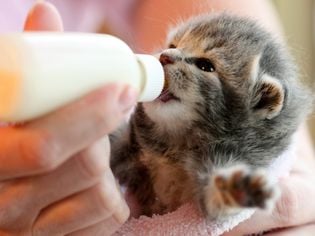
Homemade Kitten Milk Replacer Recipes
Homemade kitten milk replacer, or formula, is essential for kittens that won't suck, or when there
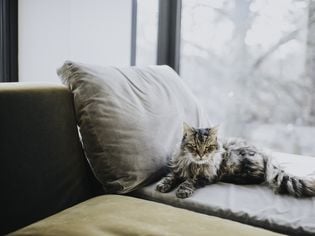
Do Cats Have Menopause?
Have you ever wondered if cats go through menopause as humans do, and if so, at approximately what

How Pinworms Affect Families and Pets
Pinworms, also known as threadworms, are a common problem for people and especially children.
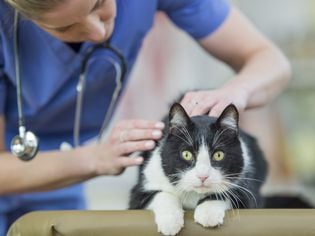
How to Know When to Call the Vet for Your Cat
This article must be prefaced with a BIG disclaimer: I am not trained in veterinary medicine and ha
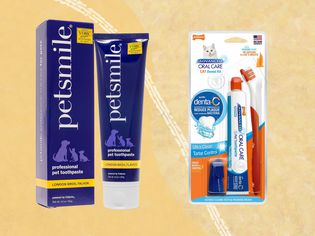
The 8 Best Cat Toothpastes
The Spruce Pets / Amelia Manley Developing a regular tooth brushing routine with your cat
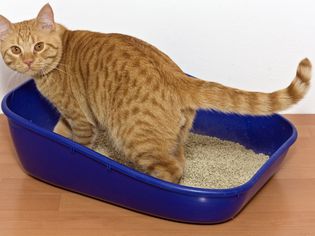
Urinary Tract Infection in Cats
A urinary tract infection, or UTI, occurs in cats when disease-causing bacteria infiltrate and over
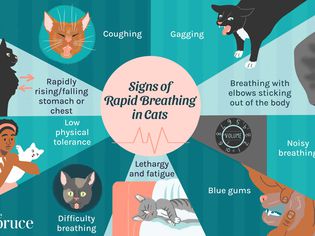
Rapid Breathing in Cats
Rapid breathing (tachypnea) is not a disease in itself, but it can be a symptom of a potentially s
About FleaFree Feline
We are a premier digital platform committed to delivering high-quality content to our readers. Our mission is to provide accurate, reliable, and engaging information that adds value to our audience's daily lives.
Our team consists of experienced content creators and subject matter experts who uphold the highest standards of professionalism. In an era of information overload, we curate content with care, ensuring our users receive only the most relevant and trustworthy information.
Beyond just reporting facts, we focus on depth and context. Through expert analysis, comprehensive research, and clear presentation, we help our audience gain meaningful insights and make informed decisions.
We take pride in being a trusted information source for our growing community of readers. Our user-first approach means we continuously adapt to provide content that meets our audience's evolving needs and interests.
Innovation and excellence drive everything we do. We're committed to improving our platform and services to deliver the best possible experience for our users.

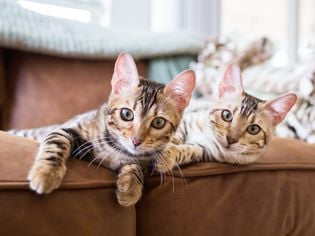
Comments on " Cherry Eye in Cats" :